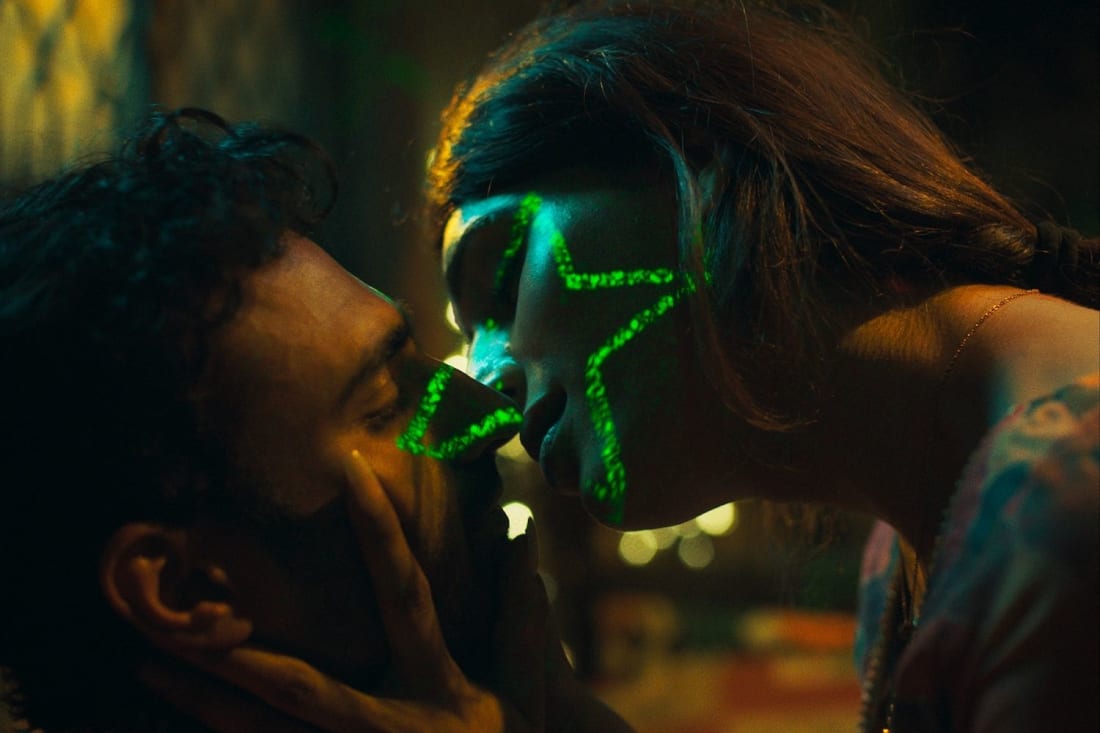Sophie Thatcher is a new kind of scream queen
The 'Yellowjackets' star opens up about her latest film: family horror-thriller 'The Boogeyman'
The 'Yellowjackets' star opens up about her latest film: family horror-thriller 'The Boogeyman'
The Boogeyman isn’t your average horror movie. Directed by Rob Savage - the filmmaker behind Zoom-themed, pandemic-era cult classic Host - it stars Yellowjackets’ Sophie Thatcher as Sadie, a teenager trying to make sense of her mother’s recent and sudden death. Struggling with the weight of her grief while battling high school bullies, Sadie's life takes a turn for the worse when her therapist father (played by The Mindy Project’s Chris Messina) encounters a distressed client who speaks of a mysterious, nebulous creature that hides in the shadows and preys on children. After this run-in, the family home falls foul to a series of strange events as her younger sister Sawyer (Vivien Lyra Blair) begins to be haunted by a destructive force that lives in the dark. Desperate to protect her family, Sadie goes on a mission to discover what’s going on - and how she can stop it before it’s too late.
Of course, the film isn’t necessarily just about monsters: it’s a compelling look at disintegrating family dynamics, the strain of single parenthood and the toll of grief on mental health. Sensitively exploring the three main characters’ very distinct approaches to grieving a loved one - from self-isolation to denial - The Boogeyman shows that, sometimes, the most dangerous forces come from within. But it’s not all gloom, as its hopeful final moments show that love, support and understanding can provide a lifeboat whenever we find ourselves lost in choppy emotional waters.
Below, we speak to Thatcher about exploring mental health through the vehicle of horror, depicting tactile, tangible grief on screen, and the film’s uplifting conclusion.



In what ways do you think the film explores the physical manifestations of grief?
The Boogeyman itself is an embodiment of grief and it’s this crazy, unknown, abstract figure that preys on the vulnerable and they're vulnerable because they're dealing with something that's so recent. I also think that Sadie deals with grief in a very specifically physical way. She's going through this phase where she's obsessed with her mum's clothes, her mum's things and she's trying to learn more about her mum through those physical items. That's where we meet her for the first time: she puts on her mum's dress, so she can have that feeling of just being closer to her.
Throughout the film, we see Sadie do battle with the Boogeyman all while trying to look after her little sister and help her dad open up about his feelings around her mother’s death. It’s a lot to have on someone’s shoulders! How do you think Sadie's character fits into ideas of big sister syndrome?
I feel like Sadie naturally falls into that and my guess is that even before the death of their mum, their dad is just kind of absent. It's ironic because he's a therapist and therapists are supposed to be open but to some extent I feel like that's realistic. I imagine she has been taking care of her sister for a while but now she feels like there's this hole in her sister's life that she needs to fill. To some extent that keeps her going because it gives her a job and it gives her a task and she loves her sister more than anything. I think she's a very good role model for the older sister archetype.
How do you think the film use elements of horror to explore mental health struggles?
The Boogeyman could stand for anything, it can be personalised to anybody. It can be your depression or anything that slowly eats at you. That's what's scary about it - whether it’s grieving or struggling with addiction. It's such a broad spectrum and I think that's why this movie can resonate with a lot of different people.
At the film’s conclusion, Sadie is almost lured back by the Boogeyman slamming a closet door, but she manages to turn her back and walk away. What do you think this symbolises in her narrative arc?
I feel like that's just her choosing to move on and I think that’s symbolic of her life post her mother's death. I feel like obviously it's setting up a sequel, maybe, who knows? But I think it shows that she has won this battle in this movie.
The Boogeyman is in UK cinemas now.



